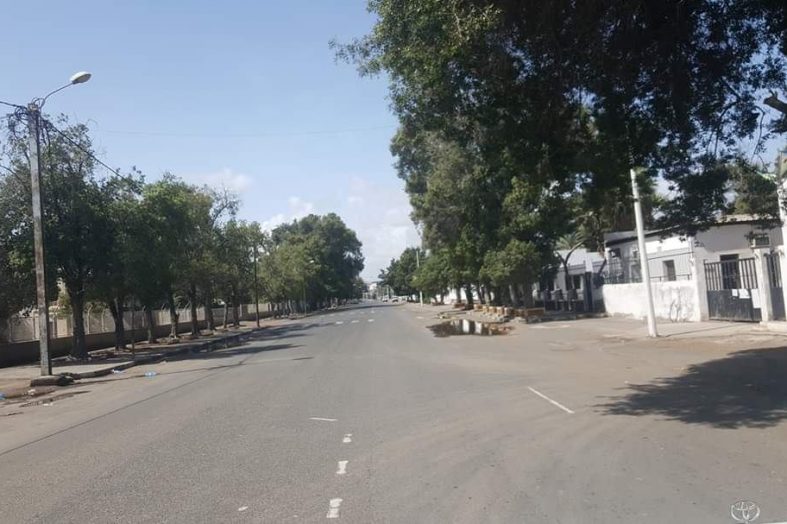By Kadar Abdi Ibrahim
This article was first published in French on 01-04/2020, some details might have changed.
Health infrastructure in the Republic of Djibouti is not capable of meeting the needs of the population. The first cases of Coronavirus were announced within this context, with a few failures: delays, and discordance. A Ministry of Health denying the reality, a president patting himself on the back, using rather vague words and telling us to be ready. The shock, to say the least, was frontal for the people of Djibouti. To date, 19 positive cases have been reported (get the latest data here), with the possibility of several unreported cases.
Social catastrophe
No doubt that this virus falls under the concept of “fait social total” developed by French anthropologist Marcel Mauss when he said: “sometimes, some events set in motion the whole of society and its institutions”. There, this COVID-19 precisely reveals and provides, so to speak, a sectional view of the entire society. In this planetary catastrophe, this serves to remind us of reality. All our daily habits were just turned upside down without us noticing. Total containment. So be it.
For two weeks and until April 9, 2020, the country will be at a standstill. “Stay at home” is the most common mantra. We understand that the response provided by the government of Djibouti is house arrest. Nevertheless, the regime will have to deal with the terrible consequences of this strategy in a fairly prompt and concrete manner. There will be social, economic, geographic and health divides. Because this unprecedented measure requires an exceptional response with proven “know-how” in the matter and a reorganization of life. China did it. Because it was prepared for it. But the government of Djibouti is most likely not!
“If you want peace, prepare for war”
An epidemiologist, Pr. Philippe Sansonetti, during his conference held on March 16, 2020, at the Collège de France, entitled “Covid-19 or the chronicle of a predicted emergence”, said before an audience of scientists that “within two months, confinement limits the rate of the infected population below the peak of 10%. The pandemic is completely over in the seventh (7th) month.” The experience of other countries that chose strict containment as a strategy is proof of this everywhere. Let’s say it now and be avant-garde to prepare for it: containment will last for over two weeks. Even more, than a month if we consider countries like Italy, China, and France. It will be nightmarish for all of us. Unfortunately, the difficulty is not because of the virus alone. It results in particular from a cruel government unconsciousness and a shortage of sanitary and logistical means.
Panic
Let’s be realistic: this confinement, even if it remains one of the best answers to curb the Covid-19 epidemic, shows the great fragility of our government system. Panic begins to win over the population. The first clashes between the population and the police took place this Saturday morning, March 28, 2020, Place Hayabley, in the suburbs of Balboa. Because people are hungry! This regime must understand that few, very few, Djiboutian families really do not have the privilege of staying at home with a full fridge as might be the case in Haramous (an affluent suburb in Djibouti). Imposing sacrifices on an entire nation requires, in turn, to open up prospects for hope. This requires organization, anticipation, and a general mobilization that goes further than technocrat meetings.
In China, Turkey, and everywhere else, solidarity chains have been set up to transport foodstuffs. Here, nothing has been done since Tuesday, March 24, 2020, if not a deployment of the police to enforce the strict summons. So don’t be surprised to be attacked by a pack of hungry people. The government only has itself to blame!
On Monday, March 16, 2020, in his speech on television, French President Emmanuel Macron did not stop repeating that “… everyone should now stay at home, the State will pay …”. But who will pay for the poor Djiboutian butcher who has no other income than what he earns from his daily hard work? Who will pay for the Loxooxley (working-class neighborhood) mother, who, to feed her offspring, only sells bread on a street corner? Who will pay for the worker who can no longer go to a construction site? In a context of strict containment, thousands of Djiboutian families will find themselves without any income. Who will pay them? Faced with a crisis of such magnitude, the formidable public power, or, more precisely, the usefulness of a solid-state that cares about its population and is mobilized appears in broad daylight. Strict containment without compensation will squeeze the economy which is heavily dependent on the informal sector.
The only lesson that we learn from Covid-19 is a total and dizzying reconsideration of society that will urgently have rethink itself in a completely different way. Faced with this pandemic, we must stand together.



